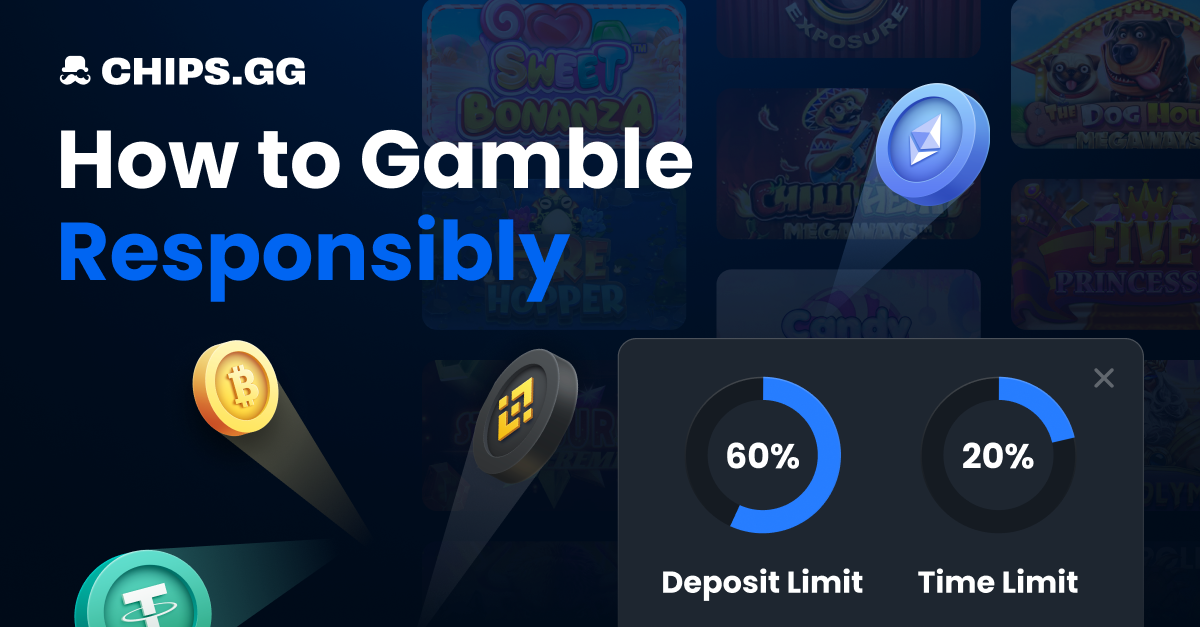A Guide to Responsible Gambling: Setting Limits, Spotting Problem Behaviors, and Seeking Help

It is important to approach gambling with a responsible perspective, regardless of whether you enjoy the excitement of a casino or prefer the convenience of online platforms. We recently talked about The Psychology of Gambling: Why We Keep Playing Even When We Lose, and now we'll go into some useful advice and insights to help you play sensibly. We'll talk about the importance of establishing boundaries, recognizing problematic habits, and getting assistance when needed. You can ensure that gambling continues to be a fun and secure hobby for you by adhering to these rules.

Setting Limits
Setting boundaries is a key component of responsible gaming. Create a budget to start, and then decide how much you can afford to lose without it negatively affecting your capacity to pay other critical bills or your ability to maintain your financial security. It's important to stick to your spending strategy and resist the urge to increase your wagering above what you had originally intended. Do not forget that gambling should be viewed as entertainment rather than a way to generate money.
The National Council on Problem Gambling suggests that establishing and upholding financial boundaries as a means of preventing excessive gambling and financial harm.
Setting time limitations for your gambling habits is equally as vital as setting financial ones. Sometimes it's simple to lose track of time while gambling because of the thrill. Establish a time limit for each gambling session, and use a timer or alarm to make sure you don't go over it.
Take advantage of the resources offered by online gambling platforms, such as deposit restrictions, which let you limit the amount of money you can deposit over the course of a certain period of time. If you feel the need to take a break from gambling, use the alternatives for time-out or self-exclusion.
Identifying Problem Behaviors
In order to encourage responsible gambling, it is essential to recognize problem habits. Understanding the warning symptoms of a gambling issue is crucial. These signs include:
- Gambling with money that you cannot afford to lose: Gambling should only include disposable cash, not funds intended for essentials such as bills, rent, or groceries. If you gamble with money that you cannot afford to lose, you should not gamble at all.
- If you find yourself being dishonest about the degree of your gambling, it may be an indication that you have a problem. This includes lying about your gambling activities or hiding them from the people you care about.
- Gambling as a technique of evading difficult situations or unfavorable feelings: Gambling as a means of relieving stress, worry, or any number of other emotional problems can eventually evolve to patterns of addiction.
- Neglecting responsibilities or relationships as a result of excessive gambling: It is cause for concern when gambling begins to interfere with a person's ability to fulfill their social, familial, or professional obligations.
- Having feelings of agitation, irritability, or anxiety when you are not gambling: When a person is not participating in gambling, it may be an indication of addiction if they have severe cravings or symptoms similar to withdrawal.
- Trying to recover losses while continuing to gamble despite accumulating financial obligations: Indicative of a troublesome pattern of conduct is engaging in desperate methods to recoup losses, such as raising the size of bets or borrowing money to do so.
It is essential to keep in mind that exhibiting any of these indications does not always point to a gambling disease; however, they may serve as early warning signs of prospective problems. It is imperative that you take action in the event that you detect any of these habits in yourself or in someone else you know.

Seeking Help
Remember, you are not alone on your path. Help is available in the form of a large number of resources for people who are struggling with issues that are related to gambling. The following are some of the steps that you can take:
- Make contact with several support groups: Gamblers Anonymous and other organizations offer support groups in which those struggling with gambling addiction can discuss their experiences and receive advice from others who have been through something comparable. The sense of understanding and friendship that may be found in these organizations can be quite important.
- Talk things through with a therapist or counselor: Seeking professional assistance from a counselor or therapist can provide you with a secure environment in which you can investigate the underlying problems that are contributing to your gambling behavior. They can assist you in the development of coping techniques and offer support all the way through the process of your recovery.
- Make use of support hotlines and other internet resources: Those who are looking for assistance with gambling concerns can call helplines such as the National Problem Gambling Helpline for guidance and assistance that is kept strictly confidential. In addition, reliable internet resources and websites, such as the National Council on Problem Gambling, give a wealth of information, self-assessment tools, and support services to individuals who are struggling with gambling-related issues.
In a nutshell, responsible gambling is an essential component in ensuring that your gambling activities continue to provide you with a great experience while still remaining risk-free and under your control. You may maintain a healthy relationship with gambling if you recognize problem habits, put boundaries on the amount of time and money you spend playing, and seek support when you feel like you need it. Always keep in mind that gambling is meant to be enjoyed as a sort of enjoyment, and it is imperative that you put your physical and mental health as well as your financial stability first. If you want to have an experience that is both satisfying and pleasurable, you need to gamble wisely, play smart, and keep educated.
Reference:
American Psychiatric Association. (2013). Diagnostic and Statistical Manual of Mental Disorders (5th ed.). Arlington, VA: American Psychiatric Publishing.
Responsible Gambling - National Council on Problem Gambling. (n.d.). National Council on Problem Gambling. https://www.ncpgambling.org/programs-resources/responsible-gambling/
(Disclaimer: The information provided in this article is for educational purposes only and should not be considered as professional advice. If you or someone you know is struggling with gambling addiction, it is recommended to seek assistance from a qualified professional or a helpline specializing in gambling addiction.)

